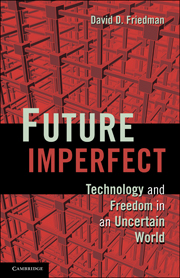Book contents
15 - As Gods in the Garden
Published online by Cambridge University Press: 18 August 2009
Summary
In the day ye eat thereof, then your eyes shall be opened, and ye shall be as gods…
Genesis 3:5The previous chapter dealt with a narrow slice of biotechnology – its application to humans. This chapter deals with applications of the same technology to other living things.
DESIGNER CROPS
Agricultural biotechnology is one of the oldest forms of high tech, going back at least 8,000 years. That, by current estimates, is when the breeding program began that eventually produced maize – the cereal Americans call “corn” – possibly from teosinte, a plant most of us would describe as a weed. Similar programs of selective breeding are responsible for creating all of our major food plants.
Not only is the creation of genetically superior strains by random mutation and selective breeding an ancient technology, so is cloning. It has been known for a very long time that fruit trees do not breed true to seed. To prove it for yourself, remove the seeds from a golden delicious apple, plant them, wait ten or twenty years, and see what you get. The odds are overwhelmingly high that it will not be a golden delicious and moderately good that it will not be anything you would want to eat.
The solution is grafting. Once your little apple tree has its roots well grown, replace the top section of trunk with a piece of a branch cut from a golden delicious tree.
- Type
- Chapter
- Information
- Future ImperfectTechnology and Freedom in an Uncertain World, pp. 216 - 226Publisher: Cambridge University PressPrint publication year: 2008



